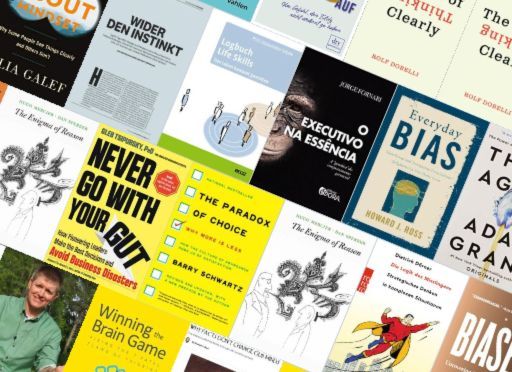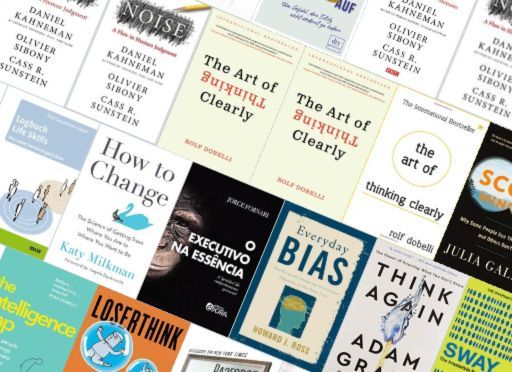Malcom Gladwell’s bestseller explores the relationship between rational thought and intuition, with surprising insights into both.

Trust Your Instincts
Few authors before Malcolm Gladwell could pull off such outstanding brand maintenance. Remarkably, his mass popularity never undermines his reputation as a credible public intellectual, a rigorous, groundbreaking thinker who writes clearly and accessibly. He is an unusually intelligent man who can write and – as his three TED Talks show, speak – in simple bestseller prose. His consistent writing, rather than his deep thinking, may be Gladwell’s true genius. He posits his ideas as new ways of thinking. He cites scientific, academic and anecdotal research and interviews people who describe how they learned that his construct is correct. He’s expert at taking what you know and explaining it back to you in interesting, sometimes even revelatory ways.
Yet, Gladwell isn’t perfect. Blink sometimes reads like a stretched-out magazine article, and it repeats ideas. Some case studies are fascinating; some aren’t. Blink is an incongruous Gladwell book in that if you skip a few pages, you probably won’t miss anything important.
Whenever we experience a basic emotion, that emotion is automatically expressed by the muscles of the face. Malcolm Gladwell
Most reviewers proved attentive and appreciative. The Guardian characterized Gladwell as, “…one of a new generation of American authors who toggle between lit-crit, cultural commentary, self-help, marketing, how to, brain function, business studies and futurology.” The New York Times said, “Blink moves quickly through a series of delightful stories, all about the backstage mental process we call intuition.”
Adaptive Unconscious
Blink is about subconscious perceptions, instinct and intuition. Gladwell argues that rational considerations often undermine the commonsense and astute judgments of your nonrational perceptions. People have a gift for refusing to credit their instincts. Modern westerners live in a culture that prizes rationality, like most cultures influenced by the ancient Greeks.
The face is not a secondary billboard for our internal feelings. It is an equal partner in the emotional process.Malcolm Gladwell
When you make an intuitive leap, Gladwell explains, you engage your adaptive unconscious, which processes data constantly to keep up with your environment, your emotions, other people’s emotions, potential threats and other aspects of each situation.
Endless repetition and practice – as explained in Gladwell’s “10,000-Hour Rule” in Outliers – enables athletes, actors, soldiers, musicians, dancers and others to respond instantly to their instincts. The burgeoning fascination with mindfulness furthers this idea, marking yet another example of how Gladwell nails the cultural moment. To be mindful is to be in the moment, not weighing your options or predicting the future – even if it’s a breath away.
Since the ancient Greeks, Western thought has valued logical, rational analysis and has been less receptive to flashes of insight. When you face an issue you can solve by logic, apply logic, Gladwell advises. But issues that require using insight and trusting your emotions don’t yield to reason. And when reason and logic contradict, he advises, heed your instincts.
Themes
Realize that life isn’t composed of “grand themes,” Gladwell preaches, but of an accretion of tiny instances – “blinks” – that often appear out of nowhere and may greatly influence your life, even if you don’t realize their power and impact until years later.
Gladwell reports insightfully that abused kids and the children of alcoholics are usually skilled readers of facial expressions. Their early development was fraught with danger, so they learned to read every adult facial cue in order to be ready to protect themselves. Later in life, they must learn to dial down those stimuli to edit input and sort benign data from malign.
The Perfect Merging
Each Gladwell book stems from a thesis. In Blink, he persuasively advocates the power of intuition. His proposition, like those of his other books, at first appears to contradict popular wisdom. But Gladwell’s arguments aren’t counterintuitive; his books are so popular that once he presents a supposedly counterintuitive concept, it becomes conventional wisdom.
We have, as human beings, a storytelling problem. We’re a bit too quick to come up with explanations for things we really don’t have explanations for.Malcolm Gladwell
Few nonfiction writers can match Gladwell’s ferocious intelligence or write with such ease of flow. He doesn’t fear complexity, and he presents complicated research with clarity. Gladwell’s admirable readability enhances his brand.
His subsequent releases seem to represent his personality powerfully, because he writes this one kind of book – over and over again. Like most writers, he expresses himself as well he can, and his personality emerges from his smooth writing. Gladwell’s strategy is the one he describes as ideal in Blink. Each book, including this one, is a textbook example of the virtues of following a rational process while vesting in instinct and not letting one outweigh or cancel the other.
Other Gladwell explorations of culture and the mind include Outliers, Talking to Strangers, What the Dog Saw, The Tipping Point, and David and Goliath.








